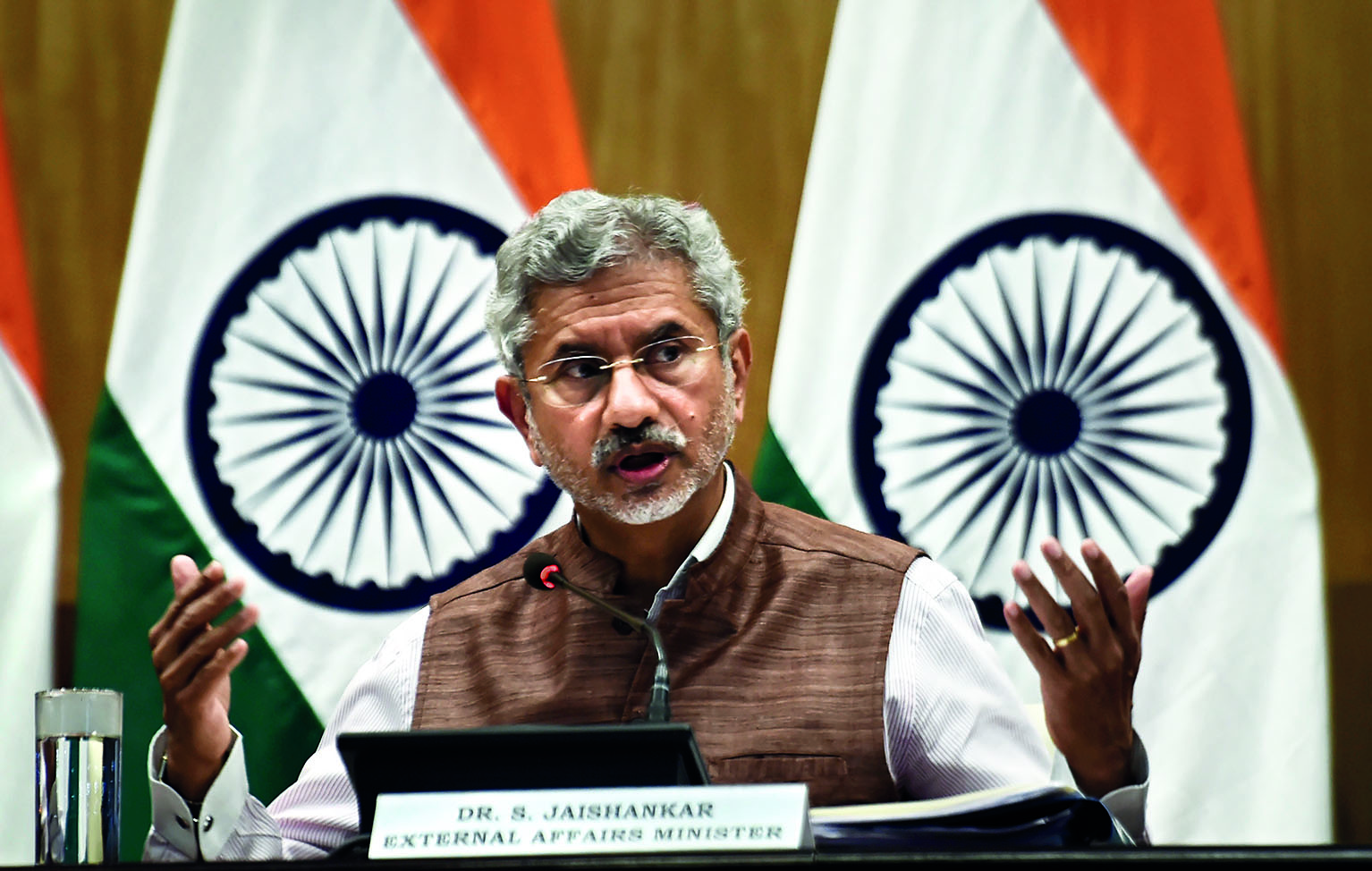‘Need to fix systemic flaws in global structures’

The conflict in Gaza is of “great concern” and the humanitarian crises arising out of it require a sustainable solution that gives immediate relief to those most affected, External Affairs Minister S Jaishankar said on Tuesday while calling for reforms of “outdated” global structures to effectively address geopolitical challenges.
In a virtual statement at the 55th session of the United Nations Human Rights Council in Geneva, Jaishankar pitched for urgently making multilateral frameworks fit to respond to current global realities by fixing systemic flaws in the current institutions.
He said it would be in collective interest and responsibility to work together in the UN and outside to find lasting solutions to geopolitical challenges.
“For this to happen, it is vital that we first recognise that for multilateralism to be credible, effective and responsive, it is now high time to reform outdated structures and fix systemic flaws, and urgently make multilateral frameworks fit for the purpose, reflecting current global realities,” the external affairs minister said.
India has been pressing for reforms in the UN, especially the UN Security Council.
In his remarks, Jaishankar expressed deep concern over the situation in Gaza.
At the same time, referring to the October 7 terror attack on Israel by Hamas, he asserted that “terrorism and hostage taking” are unacceptable.
“The conflict in Gaza is of great concern to us all. The humanitarian crises arising from conflicts require a sustainable solution that gives immediate relief to those most affected,” Jaishankar said.
“At the same time, we must be clear that terrorism and hostage taking are unacceptable. It also goes without saying that international humanitarian law must always be respected,” he added. Jaishankar said it is vital that the conflict does not spread within or beyond the region.
“And efforts must also focus on seeking a two-State solution where Palestinian people can live within secure borders,” he said.
Israel has been continuing with its military offensive in Gaza as part of its retaliation to the unprecedented attack on Israeli cities by Hamas on October 7 last year.
Hamas killed around 1,200 people in Israel and abducted more than 220, some of whom were released during a brief ceasefire. More than 27,000 people have been killed in Gaza in the Israeli offensive, according to the Hamas-run authorities in Gaza.
In his remarks at the UNHRC, Jaishankar said India’s civilisational values emphasise that the world shares “one earth, we are one family and we have one future”.
This Indian approach is defined more by how much “we are alike than by our differences” and that many are impacted by the choices made by even a few, he said, adding that this interconnectedness means that genuine dialogue as the only way to find solutions is not just an imperative, but in fact, inevitable.
“It is, therefore, in our collective interest, and responsibility, to work together in the UN and outside to find lasting solutions to geopolitical challenges,” he said.
The external affairs minister said India’s approach to human rights is rooted in its democratic principles and pluralistic ethos.
“Our Constitution guarantees protection of civil and political rights and provides for progressive realisation of economic, social and cultural rights,” he said.
“Our society and polity are anchored by our institutional strengths of an independent judiciary, robust media and vibrant civil society,” Jaishankar said.



